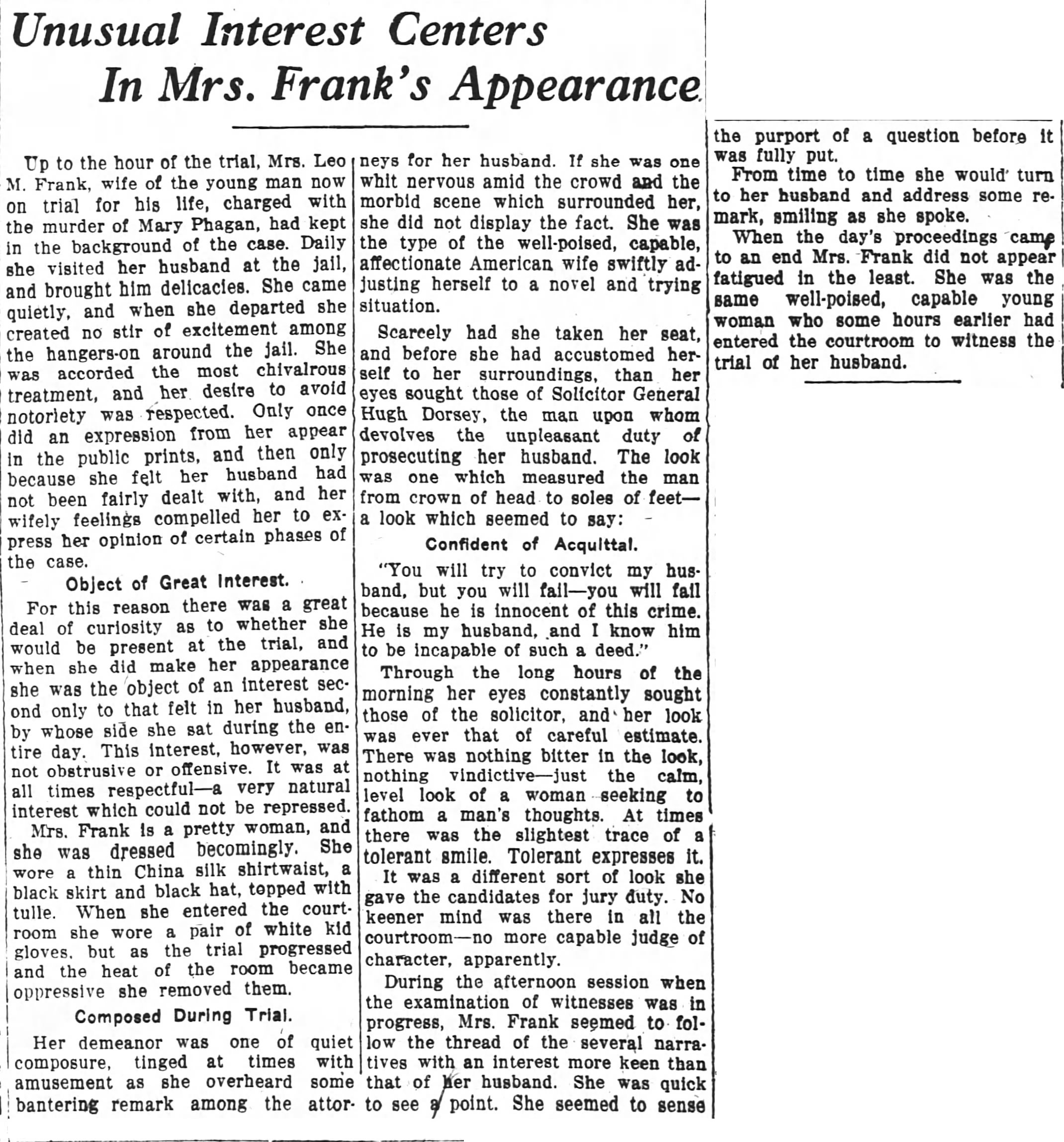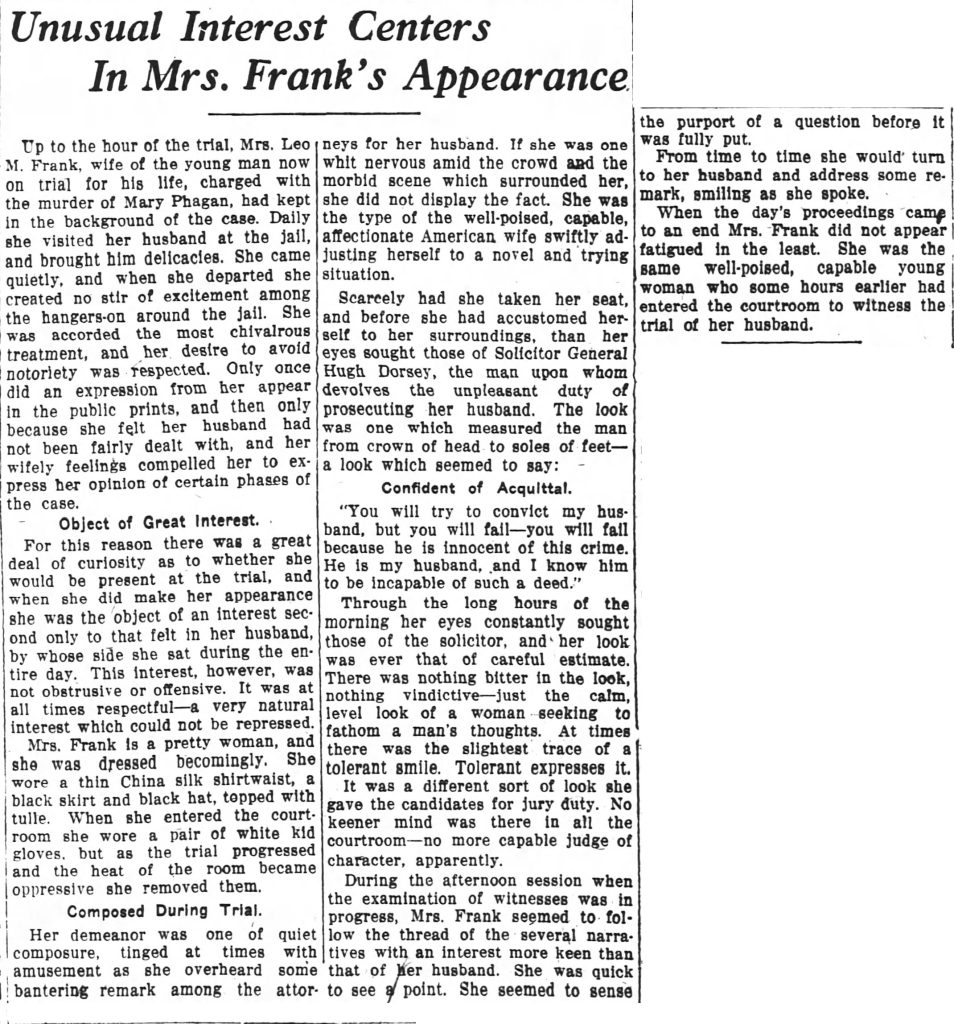The Atlanta Constitution,
July 29th, 1913
Up to the hour of the trial, Mrs. Leo M. Frank, wife of the young man now on trial for his life, charged with the murder of Mary Phagan, had kept in the background of the case. Daily she visited her husband at the jail, and brought him delicacies. She came quietly, and when she departed she created no stir of excitement among the hangers-on around the jail. She was accorded the most chivalrous treatment, and her desire to avoid notoriety was respected. Only once did an expression from her appear in the public prints, and then only because she felt her husband had not been fairly dealt with, and her wifey feelings compelled her to express her opinion of certain phases of the case.
Object of Great Interest.
For this reason there was a great deal of curiosity as to whether she would be present at the trial, and when she did make her appearance she was the object of an interest second only to that felt in her husband, by whose side she sat during the entire day. This interest, however, was not obtrusive or offensive. It was at all times respectful—a very natural interest which could not be repressed.
Mrs. Frank is a pretty woman, and she was dressed becomingly. She wore a thin China silk shirtwaist, a black skirt and black hat, topped with tulle. When she entered the courtroom she wore a pair of white kid gloves, but as the trial progressed and the heat of the room became oppressive she removed them.
Composed During Trial.
Her demeanor was one of quiet composure, tinged at times with amusement as she overheard some bantering remark among the attorneys for her husband. If she was one whit nervous amid the crowd and the morbid scene which surrounded her, she did not display the fact. She was the type of the well-poised, capable, affectionate American wife swiftly adjusting herself to a novel and trying situation.
Scarcely had she taken her seat, and before she had accustomed herself to her surroundings, than her eyes sought those of Solicitor General Hugh Dorsey, the man upon whom devolves the unpleasant duty of prosecuting her husband. The look was one which measured the man from crown of head to soles of feet—a look which seemed to say:
Confident of Acquittal.
"You will try to convict my husband, but you will fail—you will fail because he is innocent of this crime. He is my husband, and I know him to be incapable of such a deed."
Through the long hours of the morning her eyes constantly sought those of the solicitor, and her look was ever that of careful estimate. There was nothing bitter in the look, nothing vindictive—just the calm, level look of a woman seeking to fathom a man's thoughts. At times there was the slightest trace of a tolerant smile. Tolerant expresses it.
It was a different sort of look she gave the candidates for jury duty. No keener mind was there in all the courtroom—no more capable judge of character, apparently.
During the afternoon session when the examination of witnesses was in progress, Mrs. Frank seemed to follow the thread of the several narratives with an interest more keen than that of her husband. She was quick to see a point. She seemed to sense the purport of a question before it was fully put.
From time to time she would turn to her husband and address some remark, smiling as she spoke.
When the day's proceedings came to an end Mrs. Frank did not appear fatigued in the least. She was the same well-poised, capable young woman who some hours earlier had entered the courtroom to witness the trial of her husband.
Tuesday, 29th July 1913 Unusual Interest Centers In Mrs. Frank’s Appearance PDF


